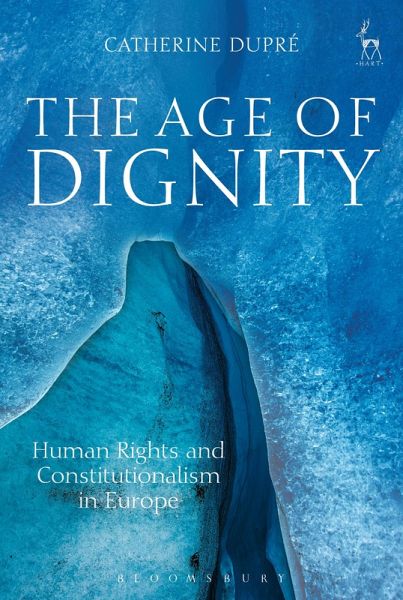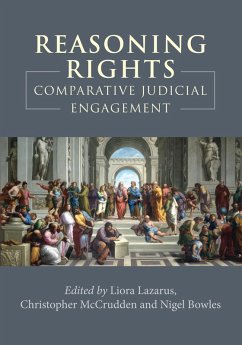
The Age of Dignity (eBook, ePUB)
Human Rights and Constitutionalism in Europe
Versandkostenfrei!
Sofort per Download lieferbar
25,95 €
inkl. MwSt.
Weitere Ausgaben:

PAYBACK Punkte
13 °P sammeln!
Human dignity is one of the most challenging and exciting ideas for lawyers and political philosophers in the twenty-first century. Even though it is rapidly emerging as a core concept across legal systems, and is the first foundational value of the European Union and its overarching human rights commitment under the Lisbon Treaty, human dignity is still little understood and often mistrusted. Based on extensive comparative and cross-disciplinary research, this path-breaking monograph provides an innovative and critical investigation of human dignity's origins, development and above all its po...
Human dignity is one of the most challenging and exciting ideas for lawyers and political philosophers in the twenty-first century. Even though it is rapidly emerging as a core concept across legal systems, and is the first foundational value of the European Union and its overarching human rights commitment under the Lisbon Treaty, human dignity is still little understood and often mistrusted. Based on extensive comparative and cross-disciplinary research, this path-breaking monograph provides an innovative and critical investigation of human dignity's origins, development and above all its potential at the heart of European constitutionalism today. Grounding its analysis in the connections among human dignity, human rights, constitutional law and democracy, this book argues that human dignity's varied and increasing uses point to a deep transformation of European constitutionalism. At its heart are the construction and protection of constitutional time, and the multi-dimensional definition of humanity as human beings, citizens and workers. Anchored in a detailed comparative study of case law, including the two European supranational courts and domestic constitutional courts, especially those of Germany, the UK, France and Hungary, this monograph argues for a new understanding of European constitutionalism as a form of humanism.













